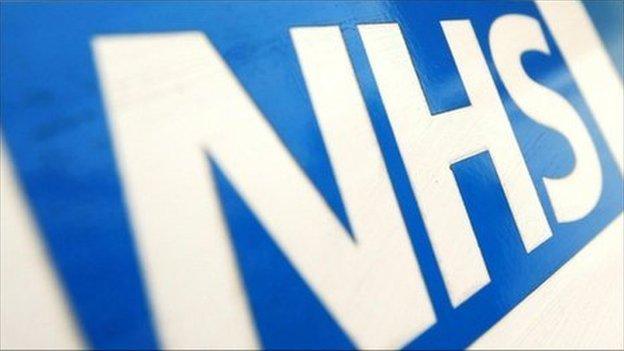Is the NHS lagging behind other health systems?
- Published

As the campaign debate on the state of the NHS in England and what the parties would do about it reaches fever pitch, there is an interesting perspective on how the health service compares with systems in other economies.
Finding comparable international health data is not straightforward. With devolved administrations as well as Westminster running health there are added complications. But the Economist Intelligence Unit has had a go at putting the NHS in a global context.
The EIU has gathered statistics from the OECD (the group of wealthier economies), some of which admittedly are for no later than 2012. The analysis looks at the UK performance, bringing together the service in England and the NHS in the devolved administrations.
The report says that rather less per head is spent on health than in many other leading economies.
Poor cousin
The UK is in the lower half of a league table of 30 nations for health staffing. In 2012, the UK had 2.8 doctors and 8.2 nurses per 10,000 people, compared with averages across the OECD of 3.2 and 8.9, respectively.
The EIU argues that the starkest differences are apparent when it comes to physical resources ,with the UK sitting near the bottom of the OECD league table. The UK has just 2.8 hospital beds per 1,000 people against an OECD average of 4.8. For equipment such as CT and MRI scanners, availability is less than half the average.
The report argues that the main political parties are on the right lines in calling for more NHS funding above the rate of inflation. The scale of the immediate financial challenge was apparent again today in a document prepared by NHS Providers, which represents health trusts in England, and made public by Labour. The paper, based on a survey of members, shows that two-thirds expect to be in deficit over this financial year, and to the tune of more than £750 million in total - three times higher than the figure in 2014/15.
Bang for buck
But the EIU analysis also concludes that the NHS is relatively cost-effective compared to other health systems. It says administrative costs are low. Being a centralised system rather than one reliant on competing healthcare insurers helps contain spending, as does the fact that there is no need to organise payments by patients.
As regards outcomes, the report suggests that NHS performance is "mediocre", though this may have something to do with lower levels of resourcing.
The UK's record on cancer survival rates is said to be "patchy". But the NHS does better on international comparisons for cardiovascular disease and diabetes.
As has been noted by the Commonwealth Fund and others, the NHS scores highly against international peers on equal access to healthcare. The EIU report concludes that the gap between the care available to low income groups and the wealthiest is smaller than in most advanced economies.
All in all, this is an intriguing contribution to the often vexed debate about the future of the NHS.
We spend less on health than many of our peers. There seems to be a consensus that more money needs to be invested in the NHS even after ambitious efficiency savings. But finding that cash in what's set to be a tough spending review later this year will be no easy matter for whoever forms the next Government.
- Published27 March 2015